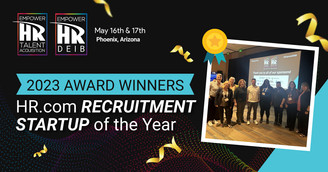Healthcare recruiting is complicated.
How do healthcare and medical recruiters assess bedside manner and in-depth medical knowledge during a phone interview? How can healthcare recruiters showcase this domain knowledge and personality with hiring managers?
Interviews are a black box
We’ve been doing interviews for years. Generations. Eons. It’s two people having a conversation about career arcs and goals, ideally. The conversation results can be shared with other stakeholders. It’s “the way we’ve always done things,” so it’s comfortable for recruiters and hiring managers alike.
Now, conversely, by this point we all know the issues with interviews as well. They can tend to get very generic. Questions are not necessarily standardized (in better interviews they are), so you’re comparing Candidate A to Candidate B even though the flow of what they answered was incredibly different. Oftentimes the “data” from interviews — the info and intel and reactions and passions of the candidate — is not well-conveyed to other stakeholders. It’s sloppy handwritten notes or quick emails to a hiring manager. This creates situations where a candidate does six or seven interviews with different people and all the questions end up being the same. It’s bad candidate experience, it’s analysis paralysis, and it needs to stop.
One industry getting a lot of attention for the last decade, and especially the last 3-4 months, is healthcare. (Logically.) If you’re interviewing someone for a healthcare role, especially a patient-facing one, what would be an ideal question that you could standardize across the hiring process and build stronger relationships with your hiring managers?
“What’s your most memorable patient experience?”
That’s it. Ask them and let them talk. See where the story goes. See where their passions are. See what makes them tick. Their answer will probably be one minute or so long. (Varies by candidate.)
Record all the answers with our platform, and send all the answers to that question to the hiring manager. Now you can compare and contrast direct responses, passions, examples of caregiving, examples of patient experience, and more directly with each other — in the candidate’s own words and voice — as opposed to it being filtered through the notes of a busy recruiter.
You just quickly solved a few major problems of interviews: how the information is conveyed, whether the questions are standardized, what the questions actually say about ability to perform in the role, and whether the questions are specific or generic.
Congrats.
Let’s dive deeper
Years ago, Harvard Business Review did a mostly-ignored article on “self-quantification,” which is a fancy way of saying “how to make interviews more data-driven.” The example they use goes like this:
Old model question: “What’s your biggest weakness, Jeff?”
Old model answer: “Well, you know, I’m just such a perfectionist…”
{pivot}
New model question: “What’s your biggest weakness, Jeff, and how are you measuring it and how would you know that you’re successful at improving upon it?”
New model answer: “Well… uh… well….”
Poor Jeff.
In a healthcare context, though, here’s your question:
“What’s been your most memorable patient experience, and how did you measure the outcomes of working with that patient? What metrics for success, beyond the emotional connection to the patient, were you using?”
Now you’re asking for personality and data analysis, which are two cornerstone traits in successful healthcare employees.
Even better… share those key answers directly with a hiring manager to hear and compare answers!
See how these few semantic shifts can make healthcare hiring a bit more focused on quality of hire?
Start a Free Honeit Trial to supercharge candidate screening and healthcare recruiting!


